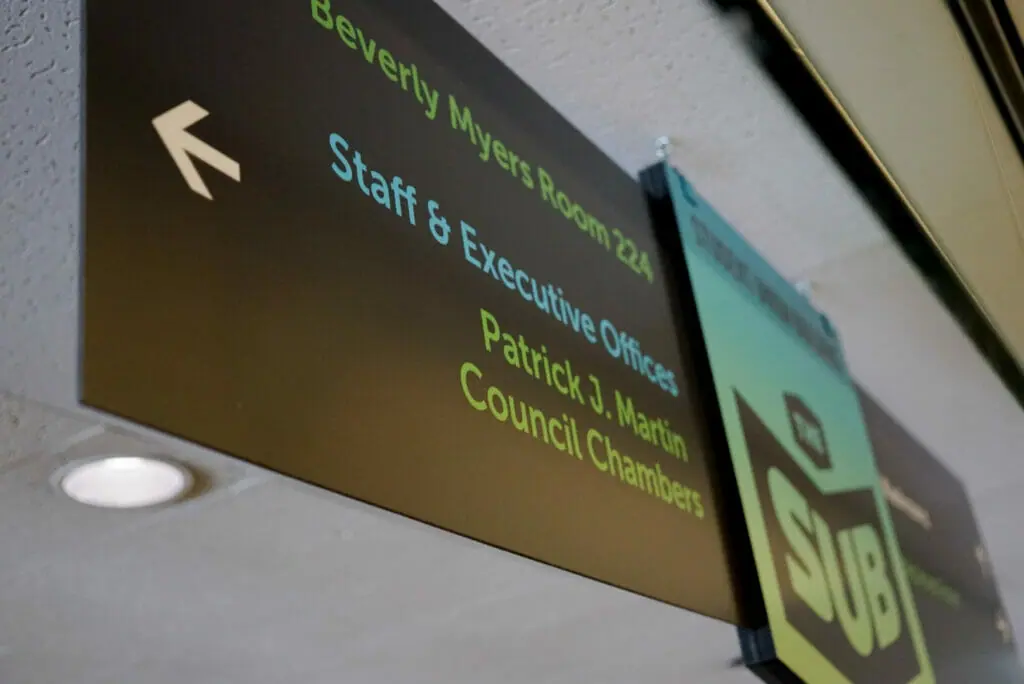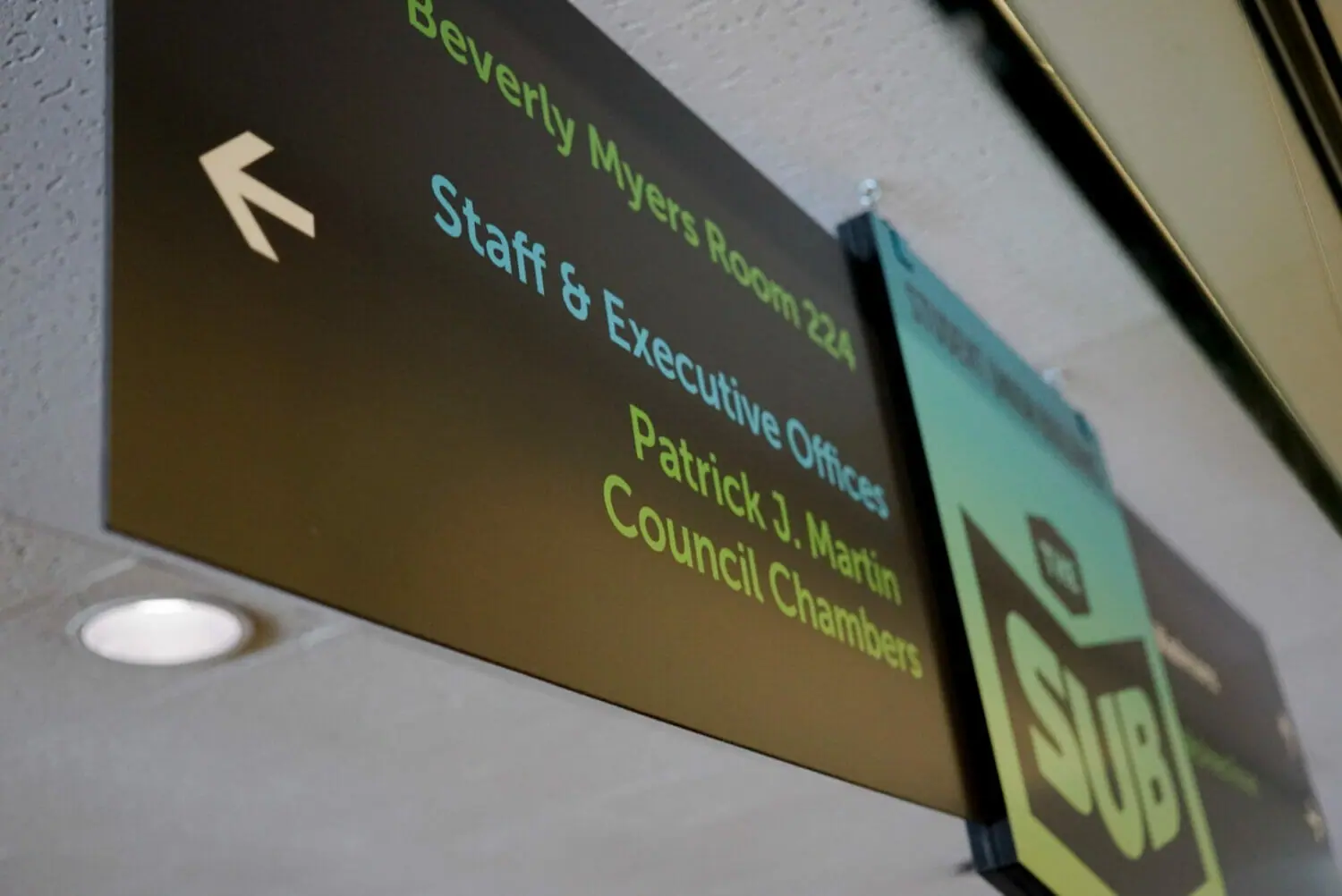The Dalhousie Student Union (DSU) held their general elections for the 2021-2022 academic year from March 8 to 9, 2021. But of the nearly 20,000 students the DSU represents, only seven candidates ran for the six available positions –– only vice-president (student life) was contested with two candidates –– and only 2,165 students voted.
Included in the uncontested races was the election for DSU president, where incumbent Maddie Stinson was re-elected.
The only voting option being an unopposed incumbent bothered some students, like Yousef AlSayyed Ahmad, a second-year international student at Dalhousie University. The night before the DSU election, AlSayyed Ahmad posted on the Dalhousie Reddit page, r/Dalhousie, calling for students to vote no confidence for Stinson.

In his post, AlSayyed Ahmad wrote Stinson spent more in expenses during the 2020-2021 year than the previous president did in 2019-2020, while other executive expenses went down.
Executive salaries, which make up the bulk of expenses, have not increased in recent history and the president’s departmental increase is a result of changes in accounting practice, said Holly Edmonds, the DSU’s communications and outreach coordinator, in an email to the Dalhousie Gazette.
“It would give time for a real presidential election to happen, where we can actually choose from candidates rather than be stuck with the hand we are dealt,” AlSayyed Ahmad wrote on Reddit.
In an interview with the Gazette, AlSayyed Ahmad said there’s a disconnect between Dalhousie students and the DSU. One way to fix the issue is to provide students with more candidates to choose from and therefore more platforms aligning with different students’ beliefs, he said.
But becoming a DSU candidate can be an antagonizing experience that’s difficult for many students, according to Aparna Mohan. Mohan became one of the DSU’s board of governor’s representatives in the fall 2020 byelection and dropped out of the race for vice-president (academic and external) in the 2021 general elections.
As an international student, Mohan ran in the byelections after not seeing her family since December 2019. She hoped it would restore a sense of purpose and community in her life.
“I was quite miserable and really distressed by the end of [the election],” Mohan said.
Election process rules
According to AlSayyed Ahmad, the DSU elections don’t seem real to students. He said the debates and campaign materials were inaccessible for students, which likely contributed to a lower voter turnout.
Due to COVID-19, the candidates’ primary way of reaching students with their platforms was through social media. But according to Mohan, the DSU’s election process creates additional barriers for fostering this type of online engagement.
“I know that the virtual election process doesn’t necessarily bring out the best in people who are still really capable leaders,” said Mohan. “But for those who really do want to use the virtual election process and make the most of it, I don’t believe that the current process rewards that meaningfully.”
The largest barrier preventing engagement is the requirement that all social media posts made by DSU candidates must be looked over and approved by the chief returning officer (CRO), Mohan said.
This makes it difficult for candidates to adapt to what methods of social media campaigning work best, Mohan said. Because candidates need to plan their posts, sometimes a day in advance, they can’t spontaneously interact with students based on their immediate feedback to a certain type of post.
Within the elections process, the application of these rules is done with the wrong philosophy, Mohan said.
“The emphasis is on avoidance of punishment, rather than how can you increase engagement with the student body,” she said.
As long as candidates follow the rules, they can engage with students in any way they’d like, the DSU said in a statement emailed to the Gazette.
“Before the campaigning period begins, all candidates are directed to the governing documents of the DSU and the Elections Policy, which outlines how a candidate can engage in various methods of campaigning,” the statement said.
DSU relationship with candidates
The issue surrounding the strict enforcement of these rules is made worse because the DSU does not foster an environment that’s welcoming for political newcomers, Mohan said.
“There aren’t really any campaign best practices or campaigning 101. Nothing like that. A lot of time is just spent talking about the various ways in which you can be penalized,” she said. “I would be spending a lot of time just figuring out what I’m allowed to do rather than getting to actually engage with the student body.”
This lack of education is indicative of a larger issue in DSU elections, said Mohan. For students, the idea of approaching a DSU election without prior experience with the union’s system can be daunting, leading to fewer candidates for students to choose from.
“I think the idea of navigating all these policies and not understanding the way things are done can be a huge disincentive,” Mohan said.
According to the DSU’s statement to the Gazette, candidates are provided with some support around campaigning, such as reference documents and workshops hosted prior to the campaigning period. But the union can’t explicitly teach candidates how to campaign, the statement said.
“To take on that role would be to breach the impartiality of the elections committee and CRO,” the statement said.
Mohan said there is also an issue with the relationship between candidates and the DSU as candidates are provided little support or flexibility when it comes to the rules.
An example of this, Mohan said, was during the fall byelections when she asked the CRO if they could develop an arrangement for social media approval that was more accommodating to Mohan’s schedule. Mohan was working a co-op job at the time, which meant she could only develop content for her campaign at night.
Mohan was told modifying the approval process would not be possible. The CRO suggested she schedule posts going forward or have campaign workers assist her, according to emails reviewed by the Gazette.
Mohan decided to end her candidacy in the general elections because she knew she wouldn’t be able to manage a campaign during a busy academic time after her experience during the byelections.
By not being more accommodating to student’s schedules, the DSU is negatively affecting the mental health of its candidates, Mohan said.
“In the DSU, we talk a lot about how prone being in these positions can be to burnout,” she said. “It seems antithetical to then contribute to that by having a very rigid constraint around how you can campaign.”
The DSU said the elections policy was developed with ethical action and fairness in mind. But, “In the future, the DSU hopes to improve communications around elections and is dedicated to continuously improving our policies, guidelines and processes for the better of students,” the statement said.
The student disconnect
According to AlSayyed Ahmad, a lot of students at Dal simply don’t care about the DSU anymore.
AlSayyed Ahmad does. He went around telling friends to vote, posted on his own social media profiles such as Instagram and published his post on Reddit.
“The people I told to vote, I swear to you, they were making fun of me,” he said.
AlSayyed Ahmad believes in the power of the DSU, and that power is in the hands of the students.
“[Students] don’t know what the DSU is actually capable of. It’s capable of a lot, but we’re just not seeing it,” he said.
Repairing some of this disconnect between students and the DSU can start with having more engaging elections, meaning more candidates, he said.
“Give the people a real political debate,” AlSayyed Ahmad said.
In an email to the Gazette, Edmonds said Dal students who “wish to raise concerns about the elections process or anyone involved in facilitating the elections” can email the union’s policy and governance coordinator at dsu.policy@dal.ca


Recent Comments